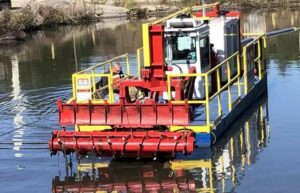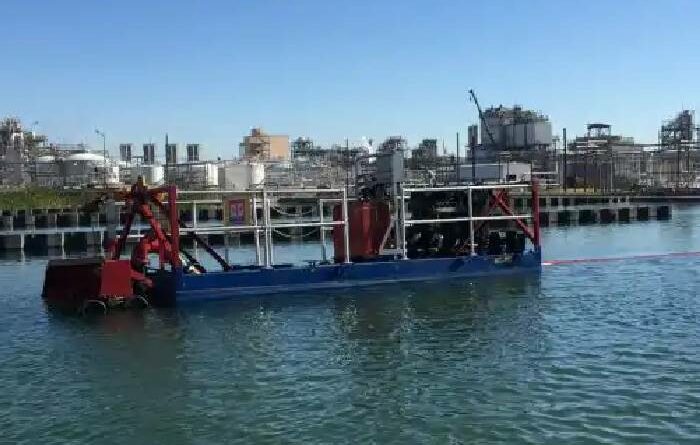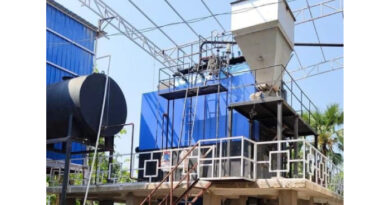The Role Of Diesel Dredges In Marine Development Projects
In the ever-evolving field of marine development, sustainable solutions are becoming increasingly crucial. Diesel dredges, with their powerful capabilities and efficiency, have become integral to many marine construction and maintenance projects. This article explores the role of diesel dredges in ensuring sustainability in marine development, highlighting their environmental benefits, operational efficiencies, and contribution to long-term waterway management.
Understanding Diesel Dredges: Essential Equipment For Projects
A diesel dredge is a heavy-duty piece of equipment designed for the excavation and removal of sediment, debris, and other materials from the bed of bodies of water such as rivers, harbors, and seas. It operates primarily through the use of a diesel engine, which powers the dredge’s hydraulic and mechanical systems, making it highly efficient for challenging tasks. Diesel dredges are essential for the construction of ports, marinas, and other coastal infrastructure and for maintaining the navigability of shipping lanes.
While other dredging technologies, such as electric dredges, exist, diesel-powered dredges are often preferred due to their robustness, reliability, and versatility in a variety of environmental conditions. They play a crucial role in both environmental remediation and infrastructure development.
Sustainability In Marine Development: Why Diesel Dredges Matter?
Sustainability in marine development projects involves ensuring that the projects do not negatively impact the environment while also contributing to long-term benefits such as economic growth and infrastructure development. Diesel dredges can help achieve these sustainability goals in several key ways:
- Efficient Resource Management: Diesel dredges allow for precise and efficient dredging operations. They are capable of removing specific layers of sediment and debris without unnecessary disruption to the surrounding environment. This means that less material is displaced, minimizing the risk of damaging the aquatic ecosystem and improving the overall health of the waterway.
- Reducing Emissions with Modern Diesel Engines: Recent innovations in diesel engine technology have led to more fuel-efficient and environmentally friendly engines. These modern engines produce fewer emissions and comply with stringent environmental regulations. As a result, diesel dredges have become more sustainable, providing high performance while reducing their ecological footprint.
- Support for Ecosystem Restoration: Diesel dredges play a vital role in restoring ecosystems. For example, in mangrove or coral reef restoration projects, dredging is required to remove harmful materials, create safe navigation channels, or allow the reintroduction of natural water flows. This helps restore critical habitats and supports marine biodiversity.
The Operational Benefits Of Diesel Dredges In Marine Projects
Diesel dredges are often chosen for their operational capabilities, which offer significant advantages in terms of both effectiveness and efficiency:
- High Power and Versatility: Diesel engines offer high power output, allowing dredges to operate in tough environments such as deep waters or areas with high sediment content. Their versatility ensures they can be used for a wide range of dredging tasks, from excavation and channel maintenance to underwater construction.
- Portability and Adaptability: Diesel dredges are typically designed for easy transport and quick deployment. They are particularly valuable in large-scale marine development projects that span extensive areas or require frequent relocation. The flexibility of diesel-powered dredges makes them ideal for various applications, including riverbed dredging, coastal erosion control, and dredging for infrastructure improvements.
- Cost Efficiency: Diesel dredges offer a cost-effective solution for large-scale projects. Their durability and fuel efficiency reduce operating costs over the long term. Additionally, the ability to complete dredging tasks quickly and with high precision can help meet project deadlines, leading to significant savings in time and resources.
The Role Of Diesel Dredges In Minimizing Impact
While dredging can have potential environmental impacts, diesel dredges can be operated in a manner that reduces these effects. Several best practices can be implemented to ensure that dredging projects remain environmentally sustainable:
- Sediment Control: One of the key environmental concerns during dredging is the resuspension of sediment. When sediments are disturbed, they can create turbidity in the water, which may harm aquatic life and affect water quality. Advanced diesel dredges are equipped with technologies such as closed-loop systems, which minimize sediment disturbance and help manage turbidity. This prevents contaminants from being released into the water and helps maintain the balance of the ecosystem.
- Use of Eco-friendly Diesel: Many modern diesel dredges are designed to run on low-sulfur diesel fuel, which helps reduce harmful emissions such as sulfur oxides and particulate matter. Additionally, efforts to improve fuel efficiency help minimize the amount of fuel consumed, further reducing the environmental impact of dredging operations.
- Protection of Marine Life: Diesel dredges can be equipped with noise-reducing systems and vibration control features to minimize disruption to marine wildlife, particularly species sensitive to sound and vibration, such as dolphins and whales. Careful planning and monitoring of dredging activities ensure that marine life is protected during the course of the project.
The Role Of Diesel Dredges In Supporting Marine Transport
One of the most common uses of diesel dredges in marine development is the maintenance of navigational channels and ports. Regular dredging ensures that shipping lanes remain clear of debris and sediment, allowing ships to safely navigate without obstruction. This is critical for international trade, as ports and harbors around the world depend on dredging to maintain access for large vessels.
Moreover, well-maintained navigation routes are essential for the stability of coastal ecosystems, as they prevent the build-up of sediment that could alter water flow and disrupt marine habitats. Diesel dredges enable the consistent removal of sediment, preventing the overaccumulation of materials that could lead to flooding or the creation of hazardous conditions for both marine transport and local communities.
Innovations In Diesel Dredge Technology: The Way For The Future
The future of diesel dredging is focused on innovation, with manufacturers continually improving the technology to meet both operational and environmental standards. Some of the latest advancements include:
- Hybrid Diesel-Electric Dredges: Hybrid systems combine the efficiency of diesel engines with the eco-friendliness of electric power. By switching to electric power when possible, these systems significantly reduce emissions during dredging operations.
- Automated and Remote-Controlled Dredges: With advancements in automation, modern diesel dredges are becoming more autonomous, requiring less manual operation and reducing the potential for human error. Remote-controlled dredging equipment also allows for safer and more precise dredging in sensitive areas, further improving environmental outcomes.
- Advanced Monitoring Systems: Diesel dredges are increasingly equipped with sophisticated monitoring systems that track environmental factors such as water quality and sediment movement in real-time. This data allows project managers to make informed decisions and adjust operations to minimize environmental impact.
Conclusion
Diesel dredges are indispensable tools for sustainable marine development, contributing to environmental protection, economic growth, and infrastructure improvement. Their high operational efficiency, adaptability, and ability to minimize environmental impact make them essential for a wide range of marine projects, from ecosystem restoration to port maintenance.
As technology continues to evolve, diesel dredges will likely become even more environmentally friendly and efficient, ensuring that marine development projects are carried out in a sustainable and responsible manner. Their role in maintaining navigability, supporting marine transport, and contributing to ecosystem preservation underscores their importance in shaping the future of sustainable marine development.




